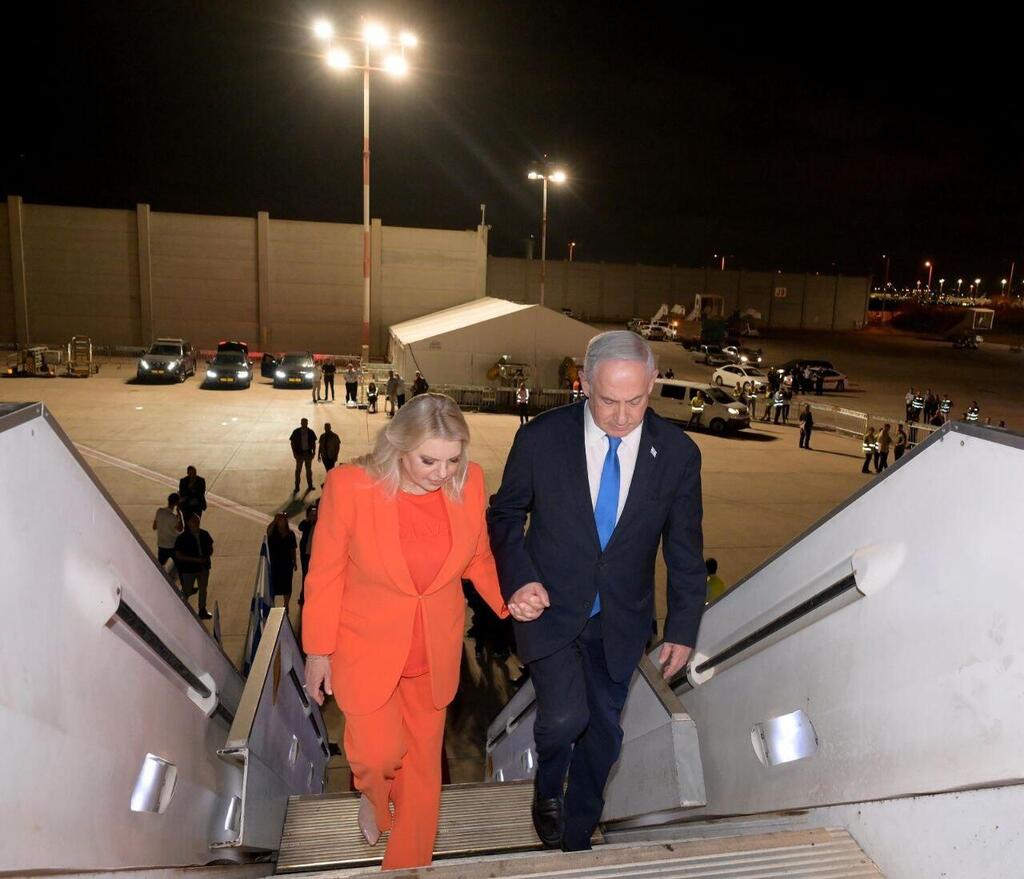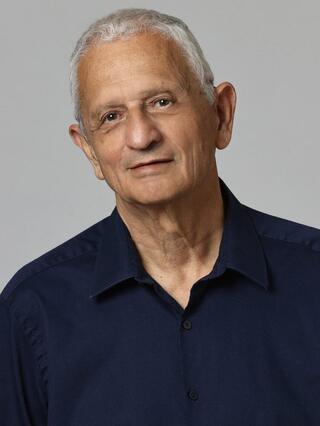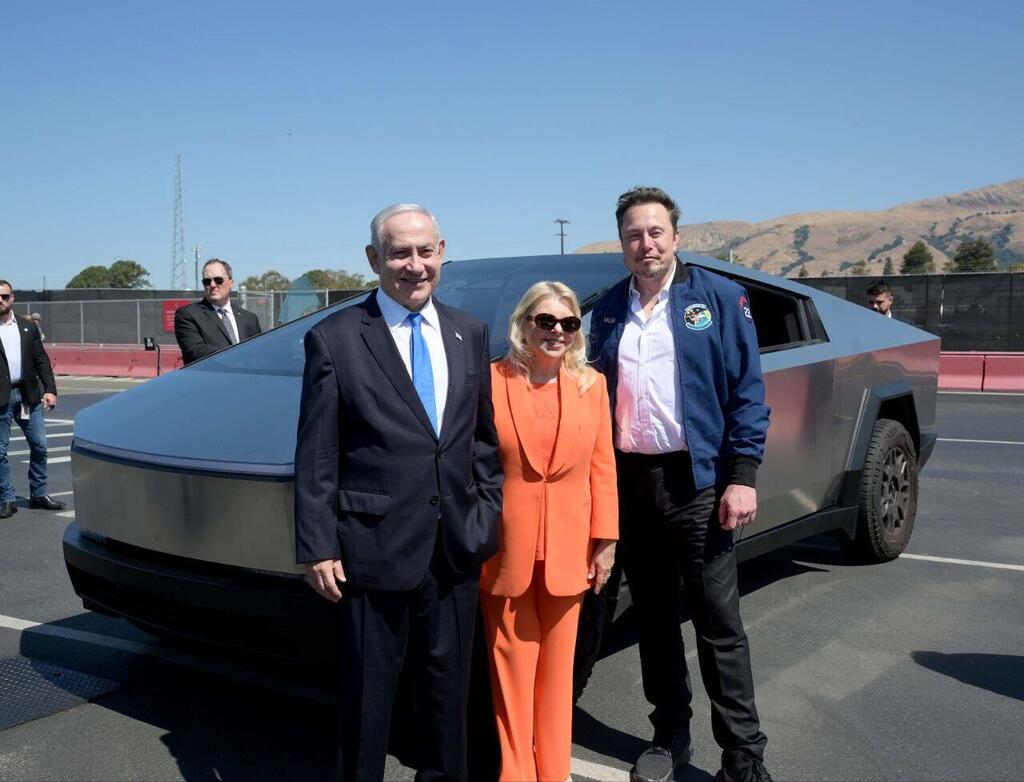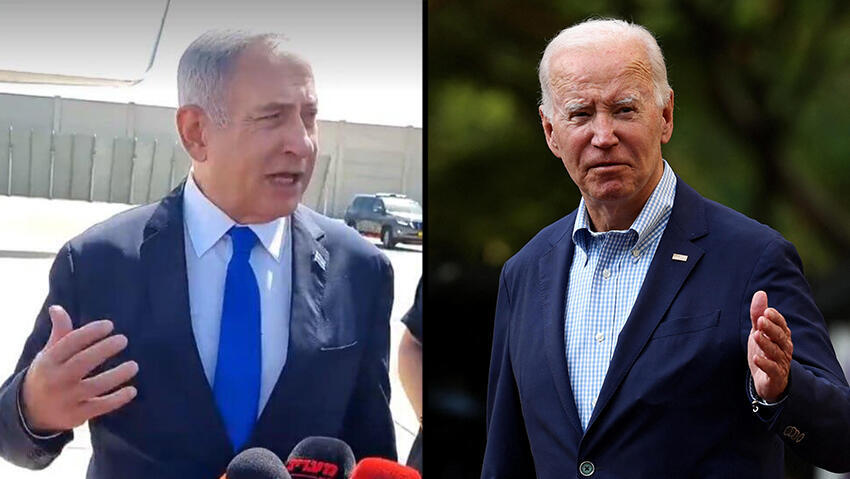Getting your Trinity Audio player ready...
In 1976, the United States marked its bicentennial, celebrating 200 years since its founding. Israeli Prime Minister Yitzhak Rabin had the honor of being the first foreign leader selected to kick off the festivities. His U.S. visit commenced in Philadelphia, known as the City of Brotherly Love. A large military jet was provided for his travel. He then proceeded to the White House, where he received a warm welcome from President Gerald Ford and key figures from both major political parties.
Read more:
Third up on the list was Los Angeles. Hollywood stars, regardless of faith, had a feast in his honor. The other guest of honor at that dinner was none other than Secretary of State Henry Kissinger. Legendary songstress Diana Ross approached both of them with a microphone in her hand, forcing them to sing. Kissinger played along, while Rabin's face turned as red as a tomato.
3 View gallery


PM Benjamin Netanyahu and wife Sara embark on a plane to the US
(Photo: Avi Ohayon/GPO)
This lavish, rockstar treatment will not be awaiting the current prime minister on his U.S. trip. The fact of the matter is we have been relegated. Netanyahu will be forced to make do with the kind of invitation that all other world leaders receive as they have to stand in a long line, waiting for an opportunity to shake the hands of the U.S. president.
Even personas non grata, such as former Iranian President Mahmoud Ahmadinejad and late Palestinian leader Yasser Arafat, were invited back in the day. Those who are not on some boycott list, find a way to extend their visit by another city or two.
Anyone who uses the UN building to project an image that says: "Don't believe the Israeli Prime Minister because he is Crime Minister", has to take into account the sensation of discomfort experienced by many Israelis, including those who wholeheartedly support the protests
Opening his current trip in San Francisco, Prime Minister Netanyahu has definitely seen better days in America. There were times when he was much more warmly accepted, with many hanging on his every word back then. In some ways, I suppose that what he's doing right now is commendable.
Instead of skulking and playing the victim, he's trying to take the lemon and make lemonade. But his current visit is challenging in one more way, because wherever he will venture to, a major protest, organized by Israelis vehemently opposed to his judicial reform, will await him, and not with open arms.
In many ways, this is unprecedented. Make no mistake, demonstrations against Israeli prime ministers in the United States are by no means a first. That said, these were mostly held by anti-Zionists and U.S. college students who are supportive of Palestinian causes. There has never been the kind of demonstrations awaiting Netanyahu in the U.S. right now, comprised of mainstream Israelis who are determined, boisterous and hostile.
The meaning of these demonstrations stretches far beyond what the upcoming video clips would be able to convey. An American friend of mine, who's heavily involved in U.S.-Israeli relations, has said, "For the past 75 years, Americans have seen Israel as a country that deals with external threats, and they must stand by its side. The demonstrations against Netanyahu will now make them understand something new, and that is that Israel is now dealing with an internal threat. They will ask themselves what is it they need to do, if anything. Who should they believe, whether it's Bibi, Sara or various Israeli protesters with signs, chanting loudly against their own premier."
By the way, this extends to the Jewish community in its entirety. Whether it's AIPAC, J-Street or anyone else. They find it difficult to support a government that humiliates the vast majority of what comprises the Jewish community in the United States, is basically exiled from the White House, pushes for further polarization within Israeli society and is absolutely reviled by hundreds of thousands of Israeli protesters.
This is also true for the Democratic Party, which enjoys wide Jewish support in the United States, and also extends to many Trump supporters. Various questions traditionally pushed away from consciousness are now resurfacing. Netanyahu's visit, the demonstrations and the way the media is obsessing over them bring them front and center.
But anyone who uses the UN building to project an image that says: "Don't believe the Israeli Prime Minister because he is Crime Minister", has to take into account the sensation of discomfort experienced by many Israelis, including those who wholeheartedly support the protests. There isn't much point in making Netanyahu to be some sort of a victim.
In San Francisco, Netanyahu met with eccentric multi-billionaire Elon Musk. Apparently, that is the purpose of his entire West Coast visit. The 52-year-old Tesla CEO is a fascinating character. He is a world-class entrepreneur on one hand, but a weird and insufferable person on the other. That said, he does exude success, which as far as Netanyahu is concerned, means that all else is forgiven.
As far as we are concerned, the one thing that is truly concerning is X (formerly known as Twitter), recently acquired by Musk. The voices coming out of it have taken on an increasingly racist, antisemitic and anti-democratic fervor. The Anti-Defamation League has expressed its deep concern about X, prompting Musk to threaten legal action.
 Nahum BarneaPhoto: Avigail Uzi
Nahum BarneaPhoto: Avigail UziI struggle to understand the reason why my prime minister needs to fly to the West Coast of America to meet an eccentric billionaire. It would have been more acceptable had Musk agreed to meet Netanyahu in either Jerusalem or New York.
Well, at least the photos from these meetings have great composition and Netanyahu has once again flaunted his fluent English to the delight of the supporters of the current Israeli coalition. I guess we have to settle for that.



